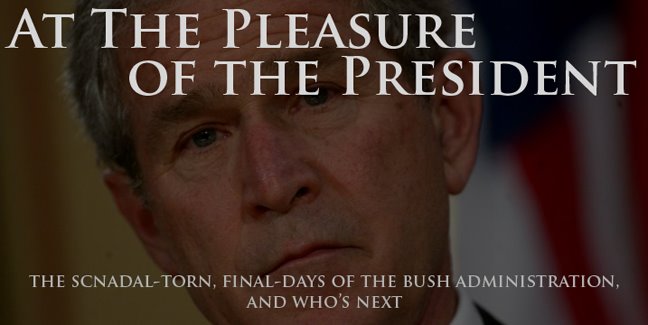I sat down today and listened to the Virtual Town Hall Meeting put on by MoveOn.org on April 10. You can download an mp3 of it by right-clicking here, and selecting save as. If you would rather listen to a particular candidate, you can go here, MoveOn.org separated the 88 minute long event by candidate and question, allowing you to listen to only the candidate you want and only the responses you’d like to hear.
It was the first of three such virtual town halls, and the subject was
Essentially, their answers can be condensed into the following chart. They each had an opportunity to address four questions about their
| Start Withdrawal When: | Get Out By: | |
| Obama | May-07 | Mar-08 |
| Clinton | 90 days | Mar-08 |
| Richardson | Doesn't Specify | Jan-08 |
| Kucinich | Start Now | Doesn't Specify |
| Dodd | Start Now | Mar-08 |
| Biden | 90 days | Mar-08 |
| Edwards | Start Now | Doesn't Specify |
| Residual Force? | Residual Bases? | |
| Obama | Doesn't Specify | Doesn't Specify |
| Clinton | Temporary | Temporary |
| Richardson | None | None |
| Kucinich | UN Peace Keepers | None |
| Dodd | Feingold-Reid | Feingold-Reid |
| Biden | Doesn't Specify | None |
| Edwards | Doesn't Specify | Doesn't Specify |
*Feingold Reid does not specify a date for all US forces to be withdrawn, it allows a small force to remain there for specific purposes, such as anti-teorrorism.
Almost all mentioned engaging traditional enemies in the region, and using diplomacy to help secure and rebuild
Each candidate also answered two more questions, but they were individualized for each candidate, and as a result there wasn’t wide overlapping that allows any systematic analysis. As an overall judgment, I was surprised that Obama didn’t sound better, although he proposed an adequate plan for
I really think the low point of the debate was Biden’s “Then What?” idea. He essentially lambasted the other candidates for not having a plan once the troops are withdrawn. His plan is to federalize the Iraqi government, and allow each sect to have control over their region. So Sunni’s are protected by Sunni police, and Kurdish schools are taught by Kurdish Teachers. Its not a bad idea, these kinds of ethnic conflicts have been brought to peaceful resolutions by territorial segregation, but then rival states share borders and continued resentment could lead to future conflict, as we have seen in the case of India and Pakistan. But the largest flaw of his proposal is fundamental in nature, he isn’t Iraqi. We’ve done enough meddling in Iraqi affairs, dictating their government to them will not be successful in restoring peace. Biden is trying to be
Below you’ll find embedded links of each candidates answer to the first question.
John Edwards
Joe Biden
Dennis Kucinich
Bill Richardson
Hillary Clinton
Chris Dodd
Barack Obama

No comments:
Post a Comment